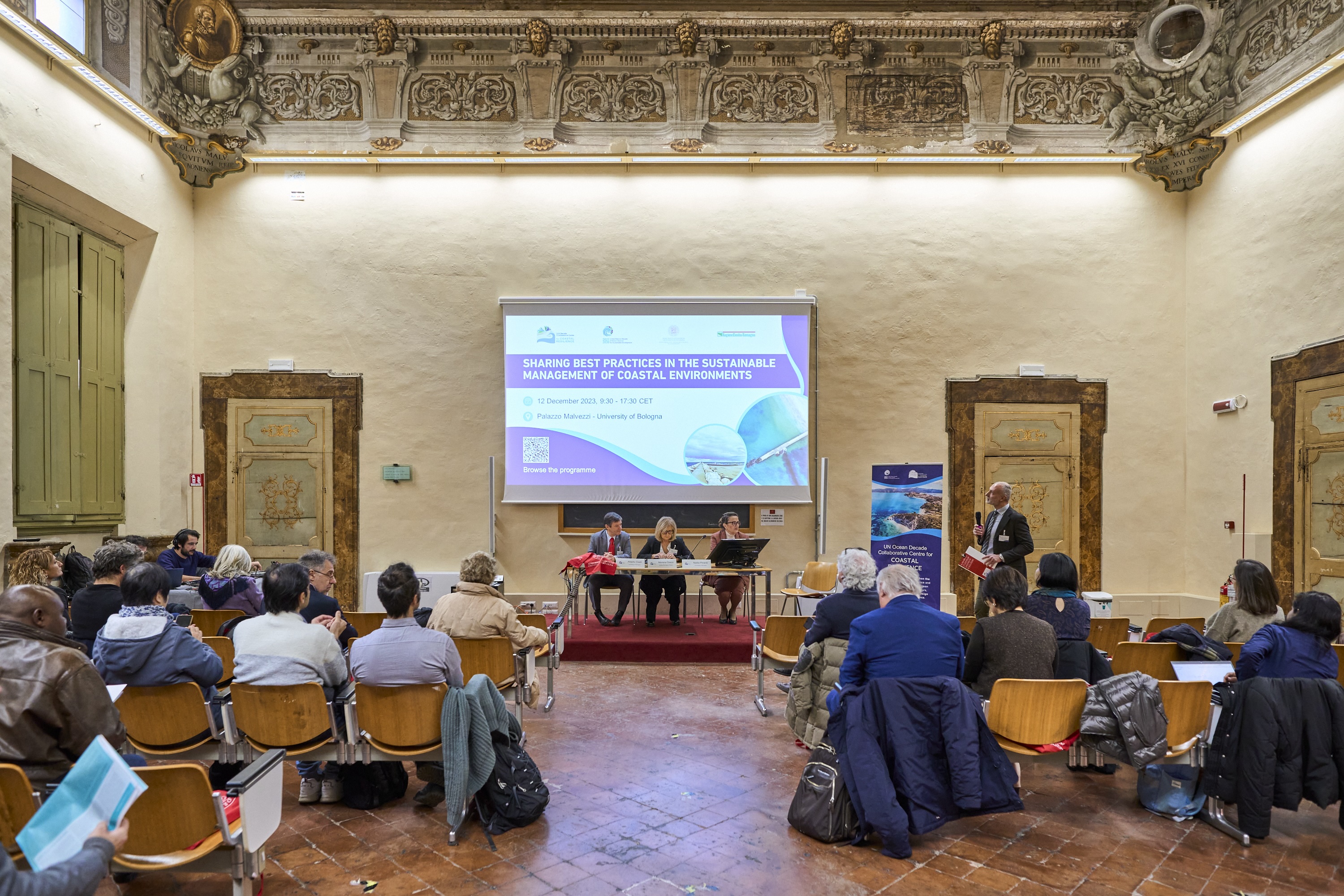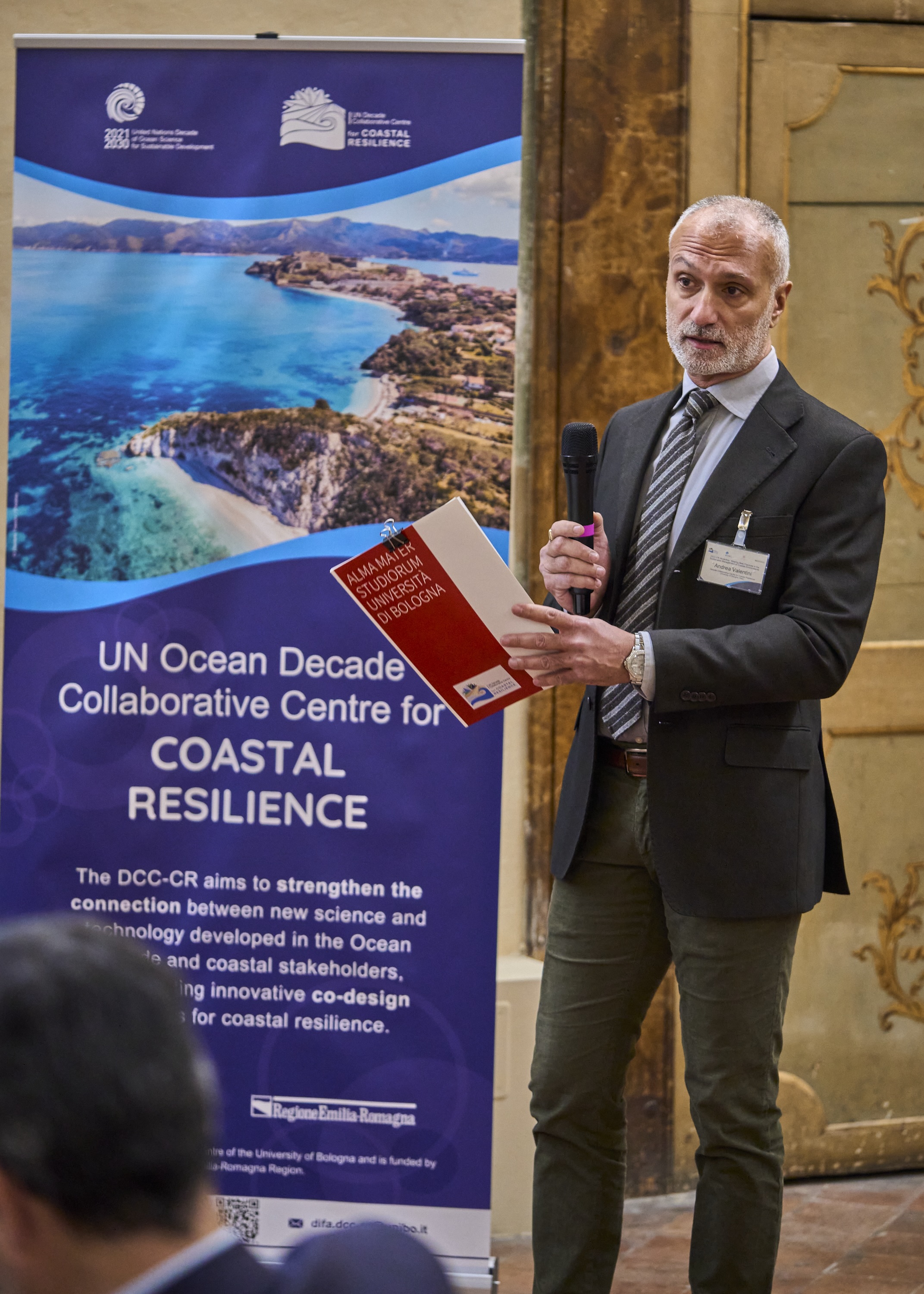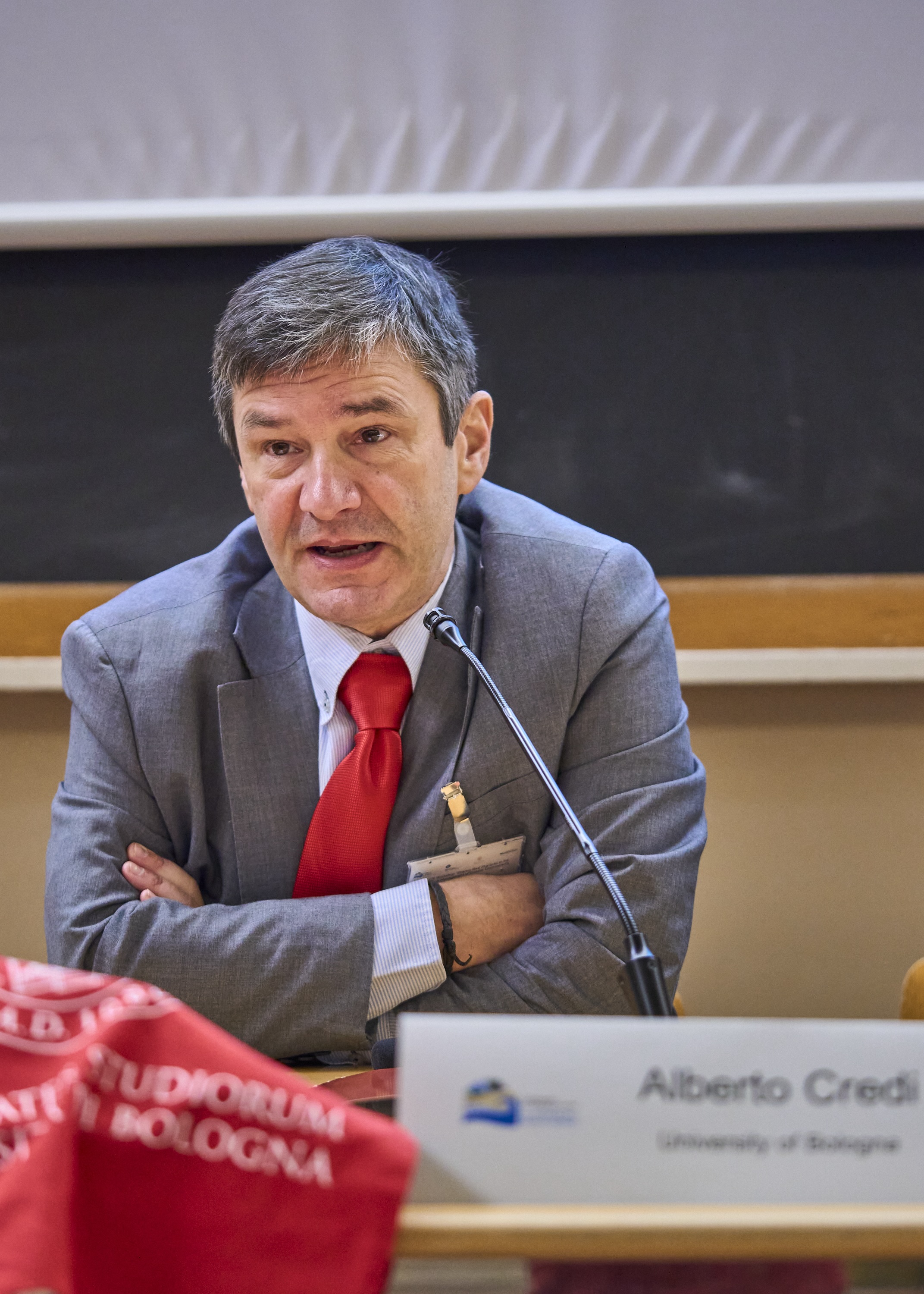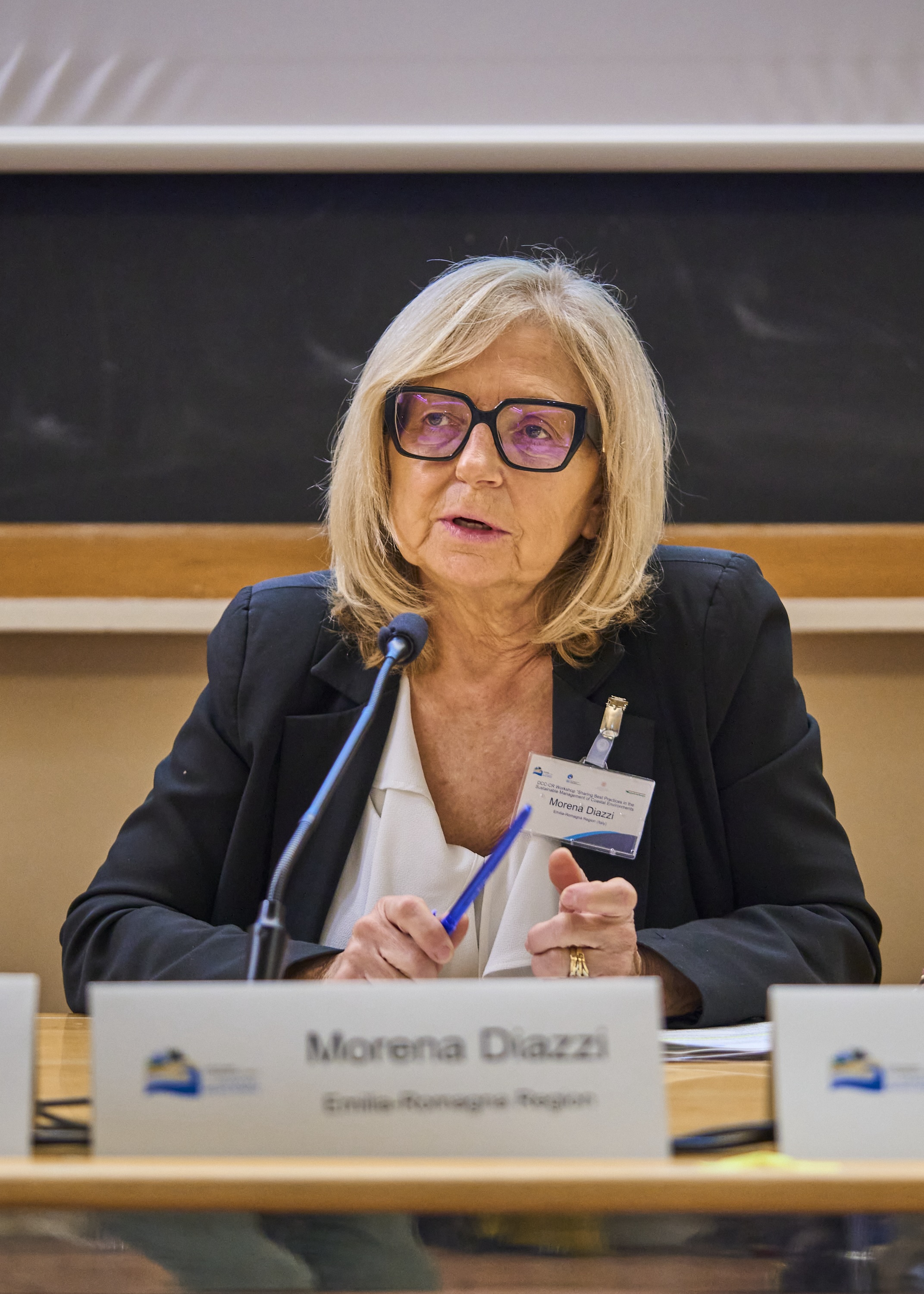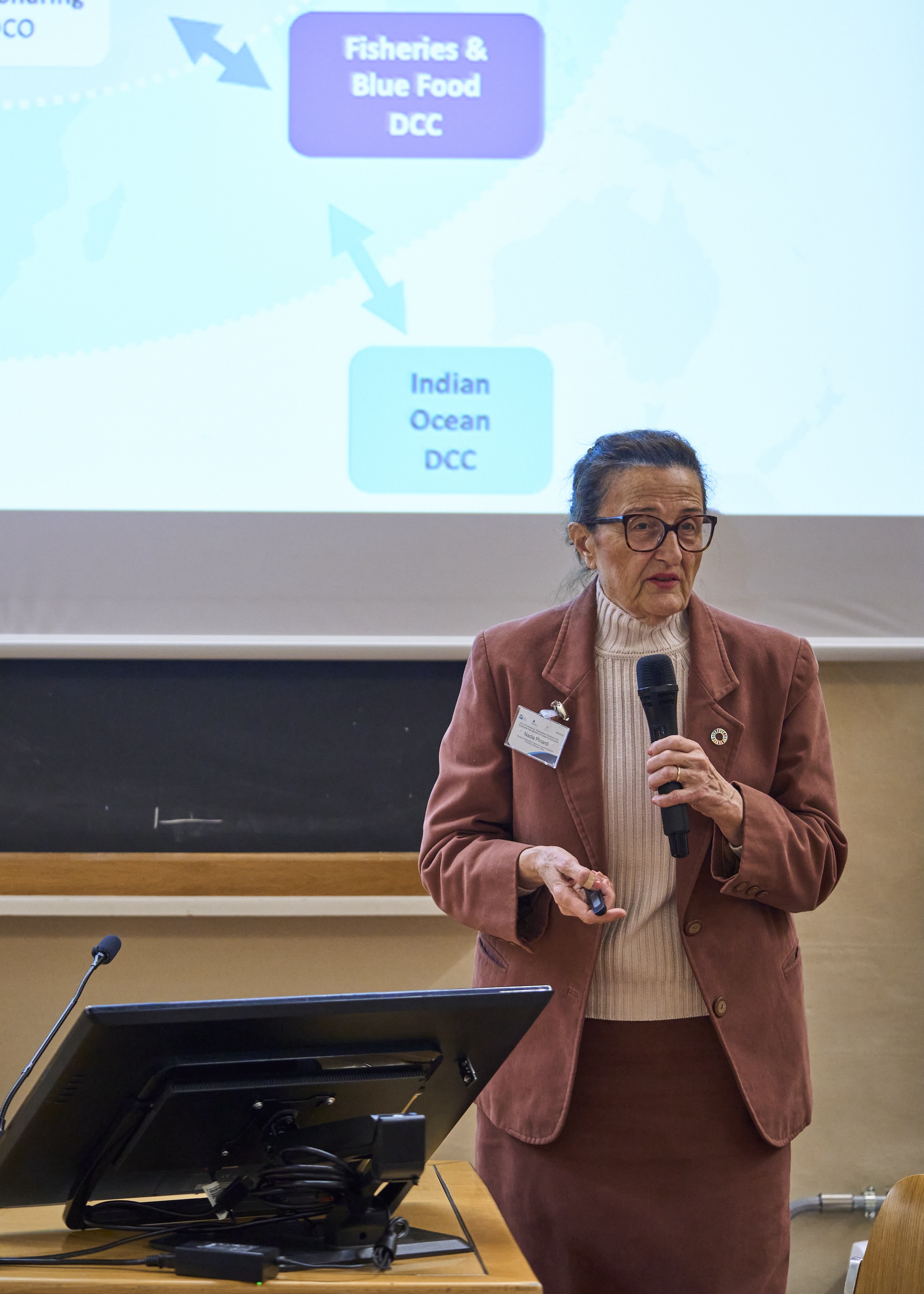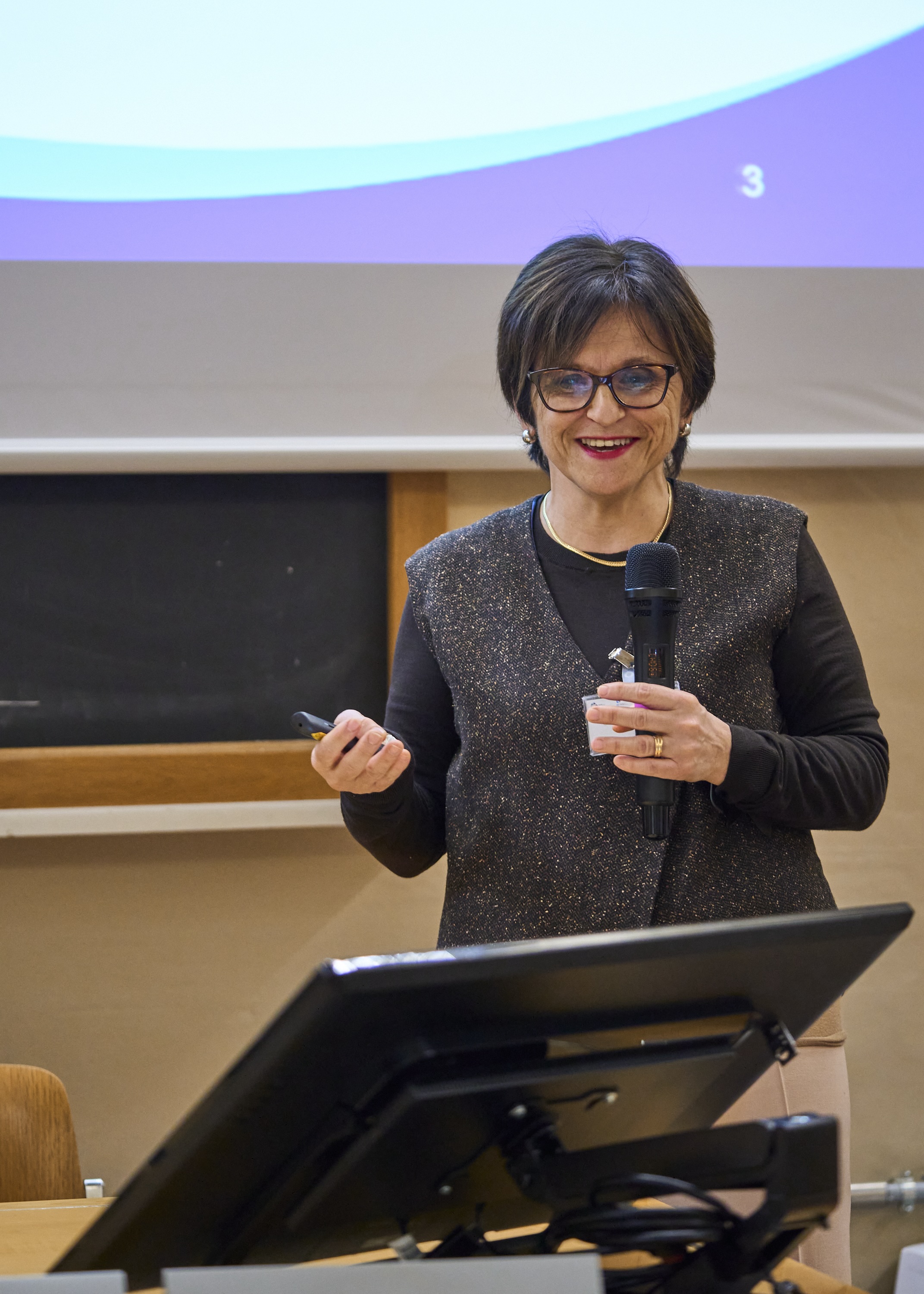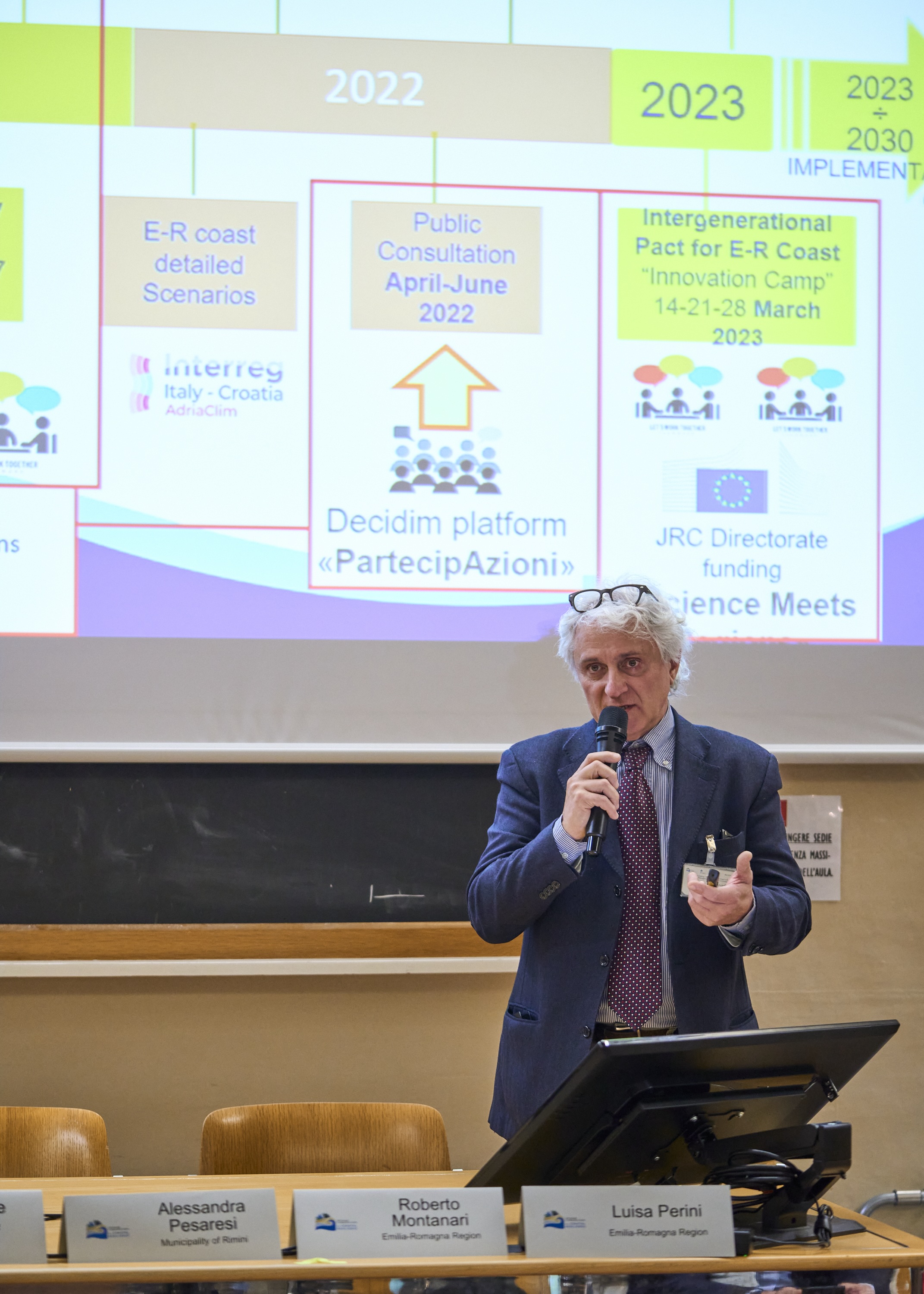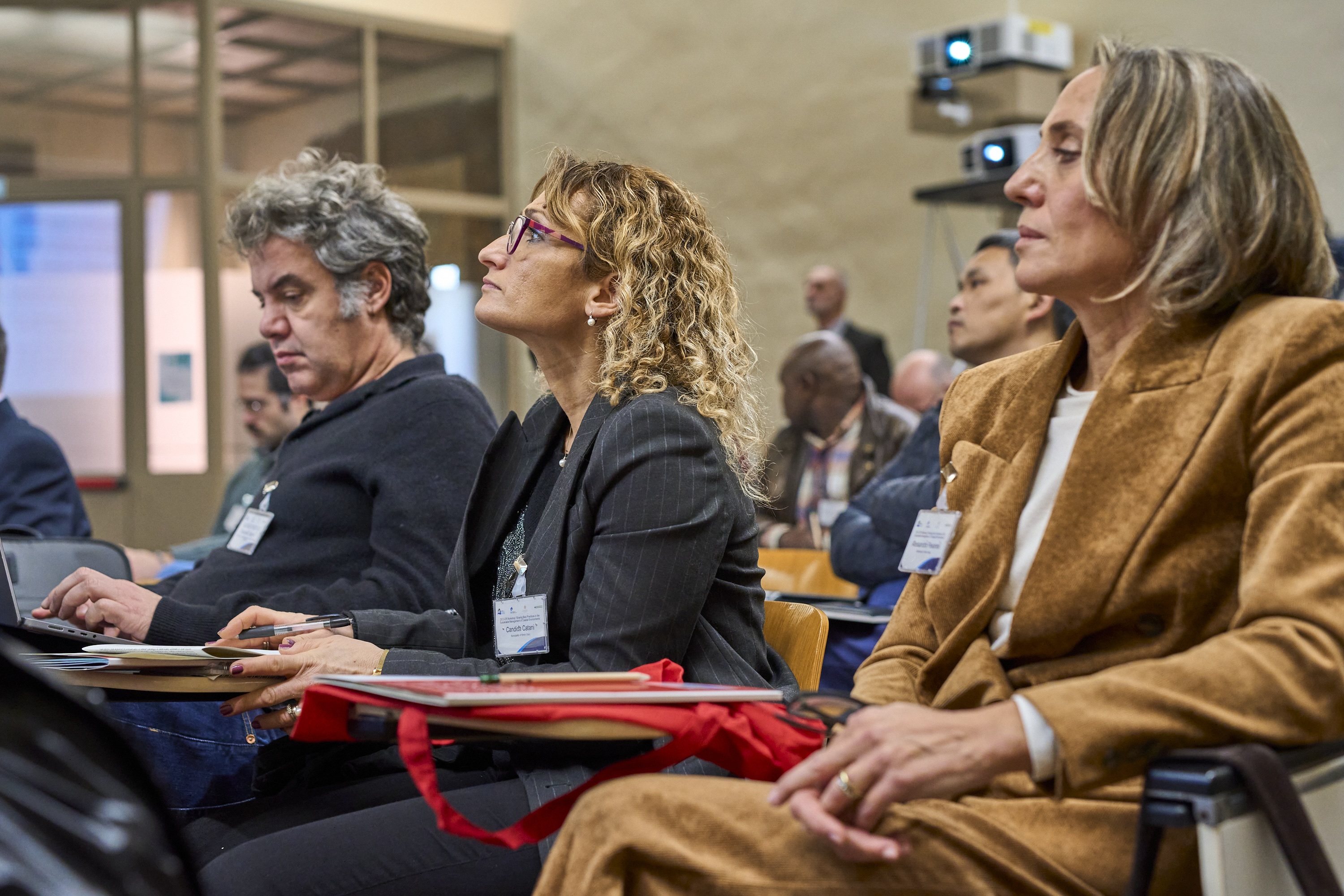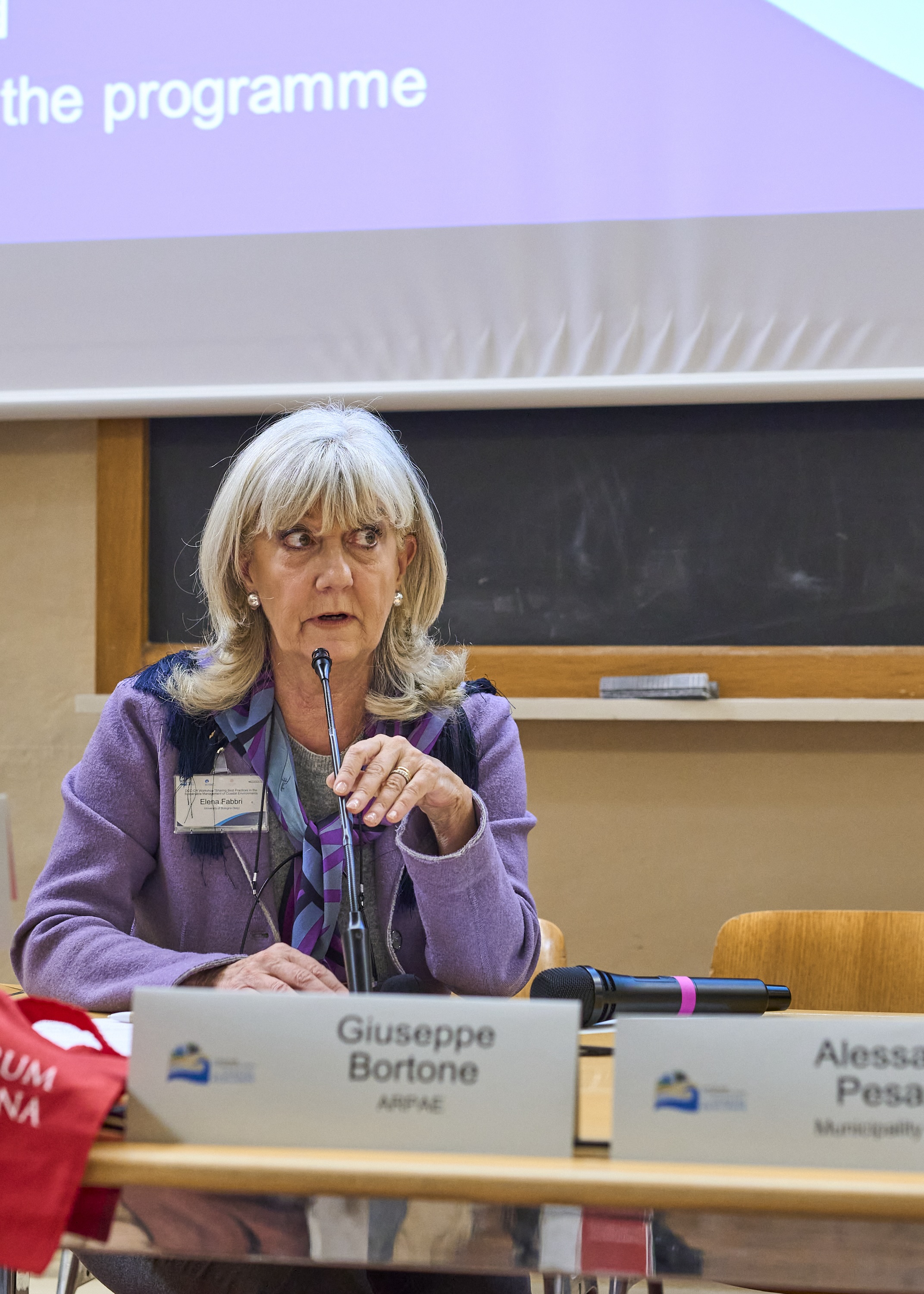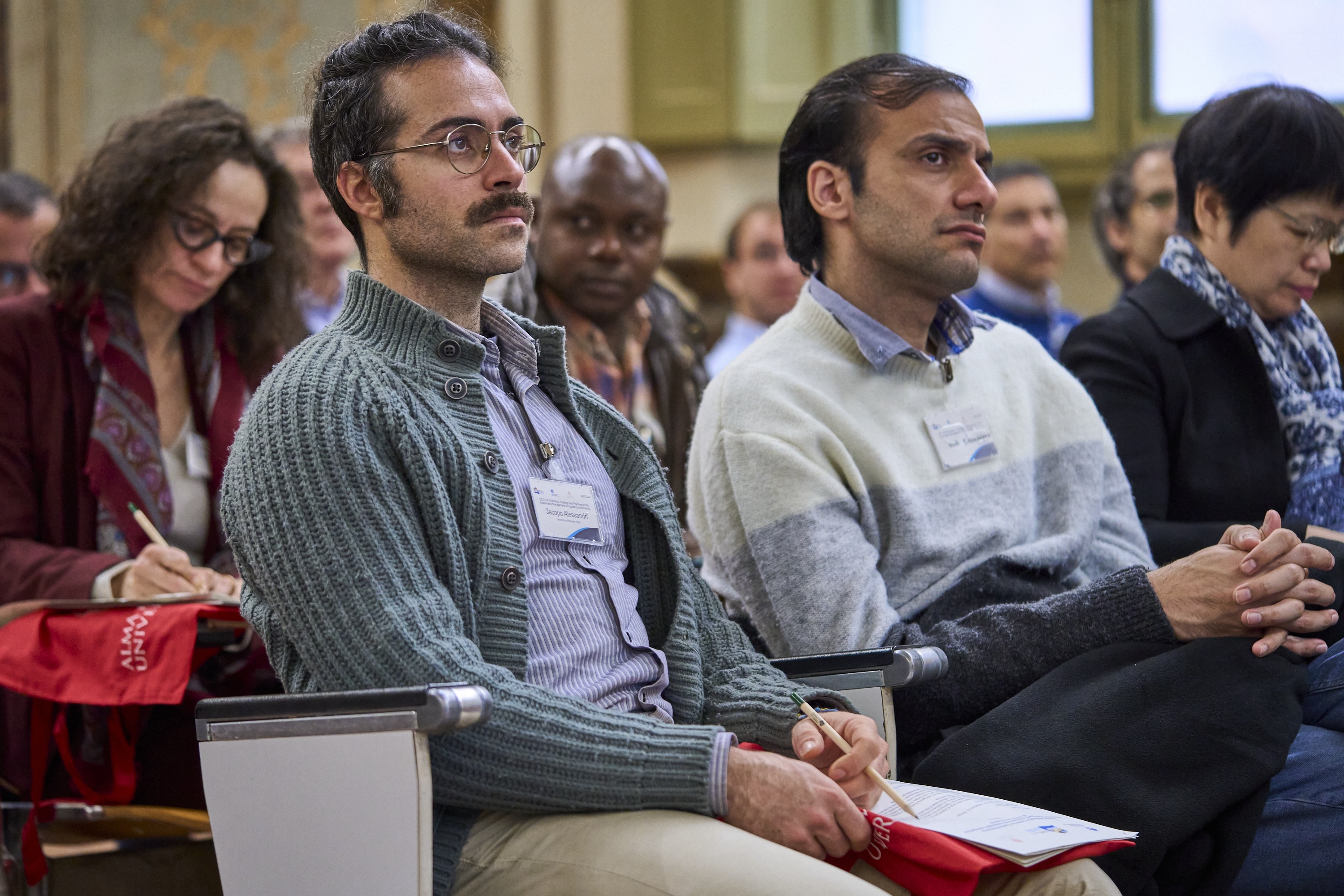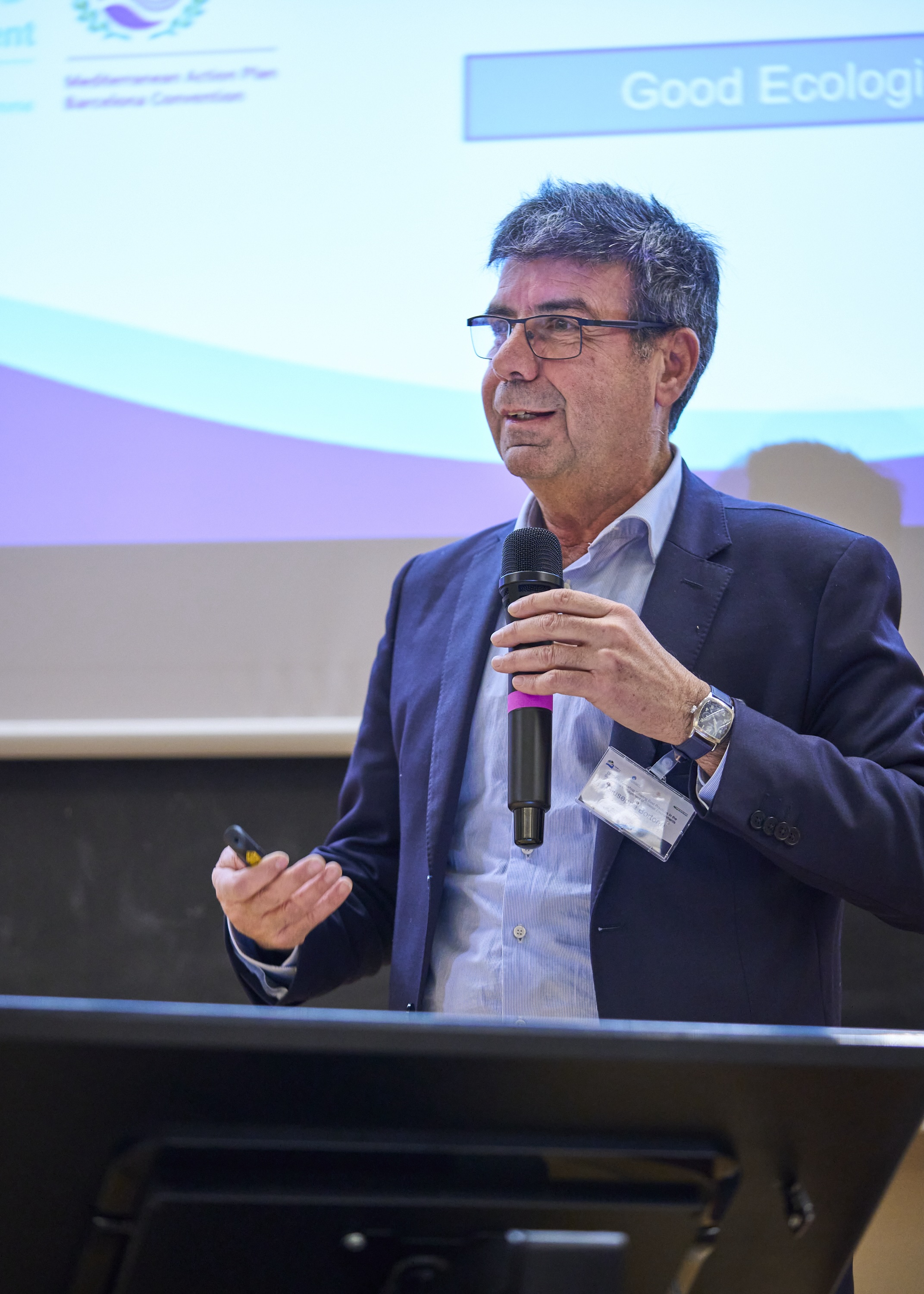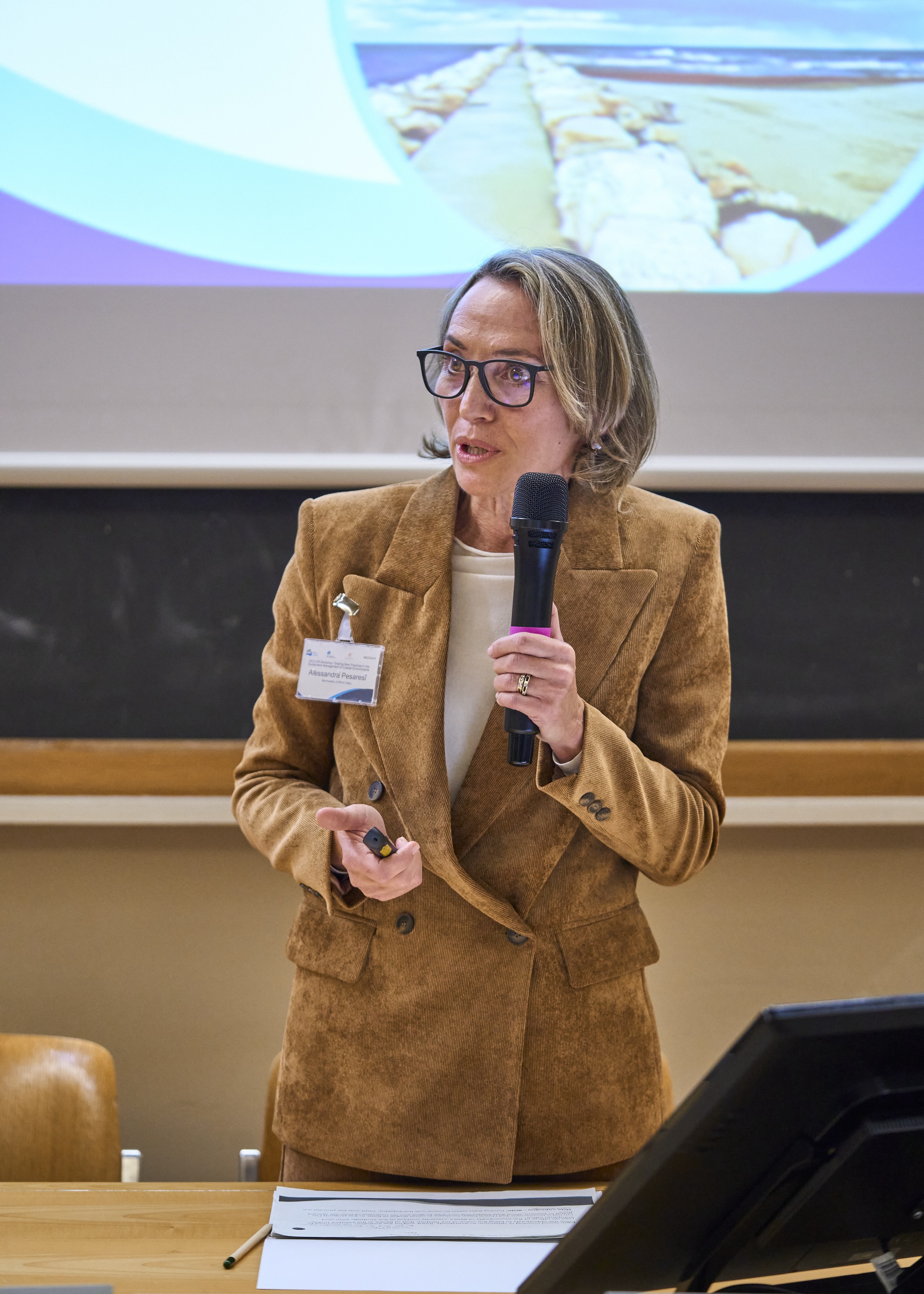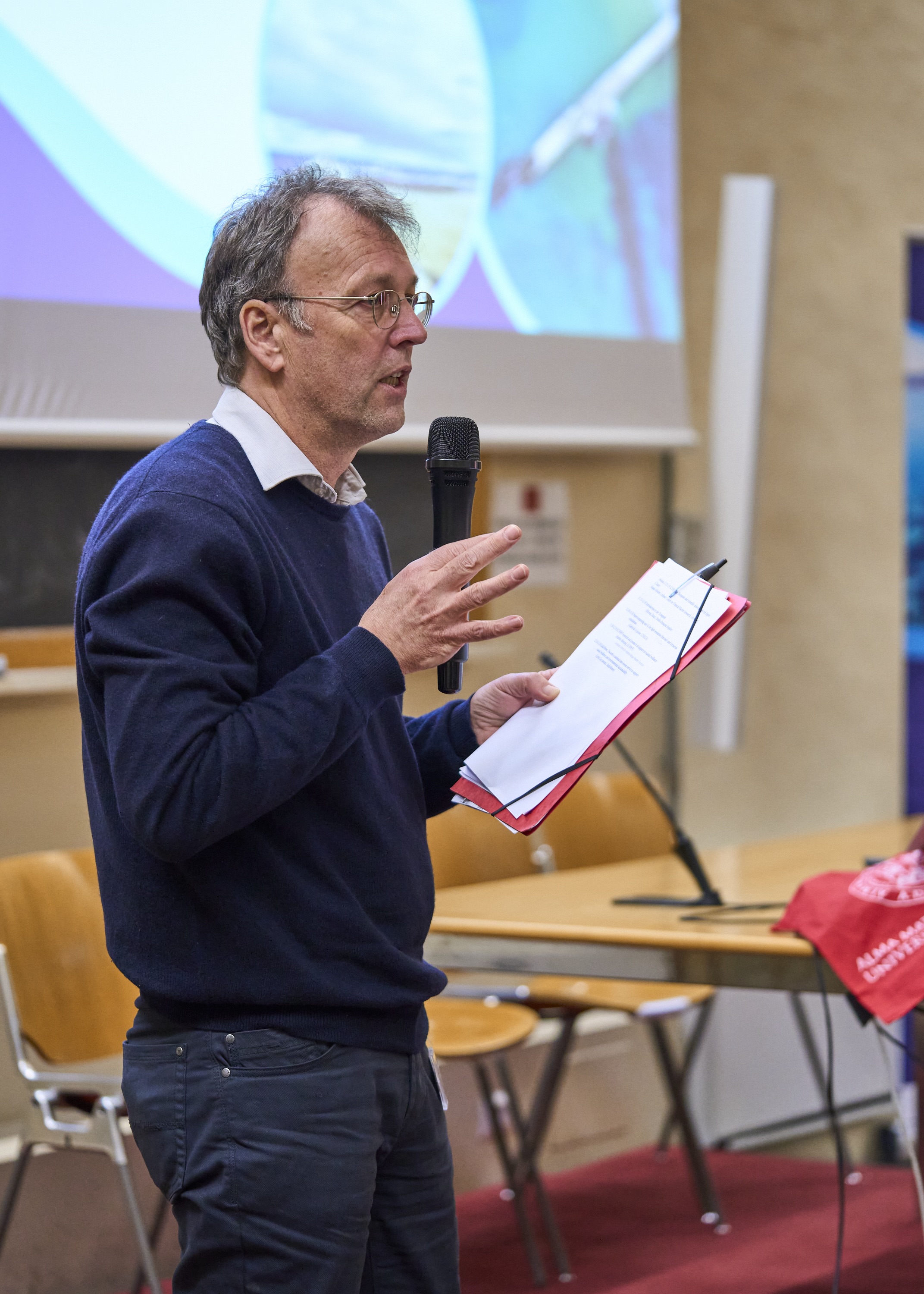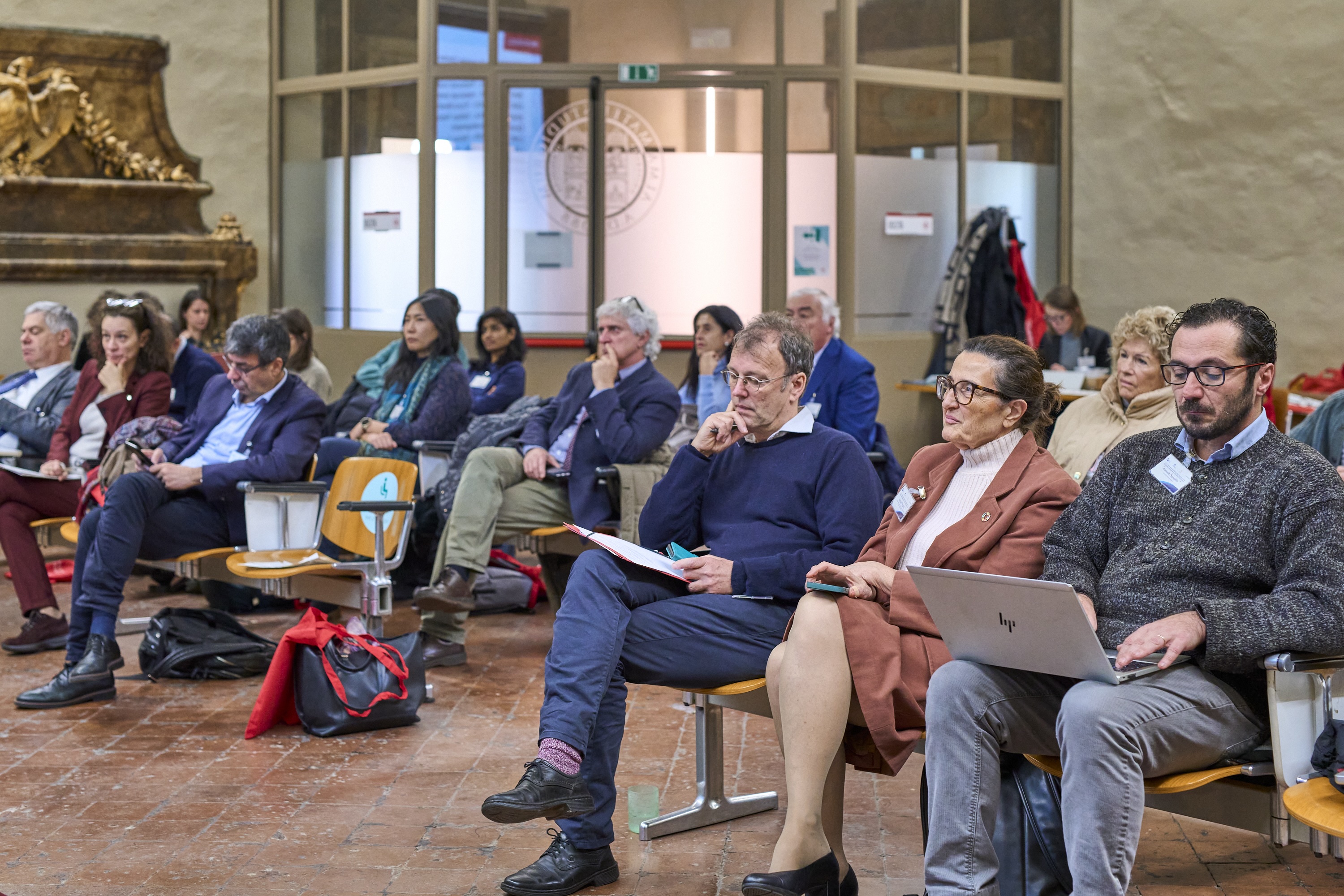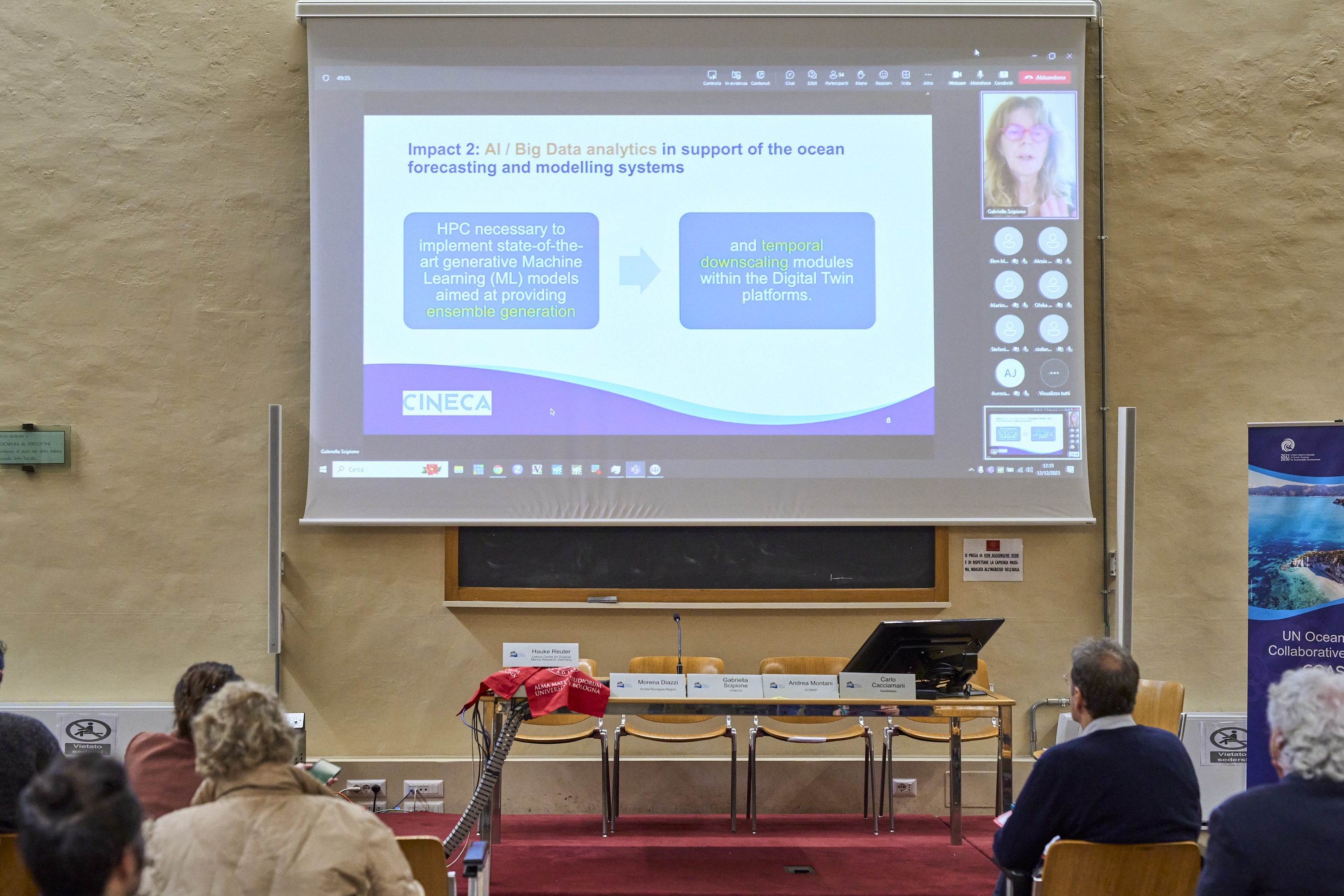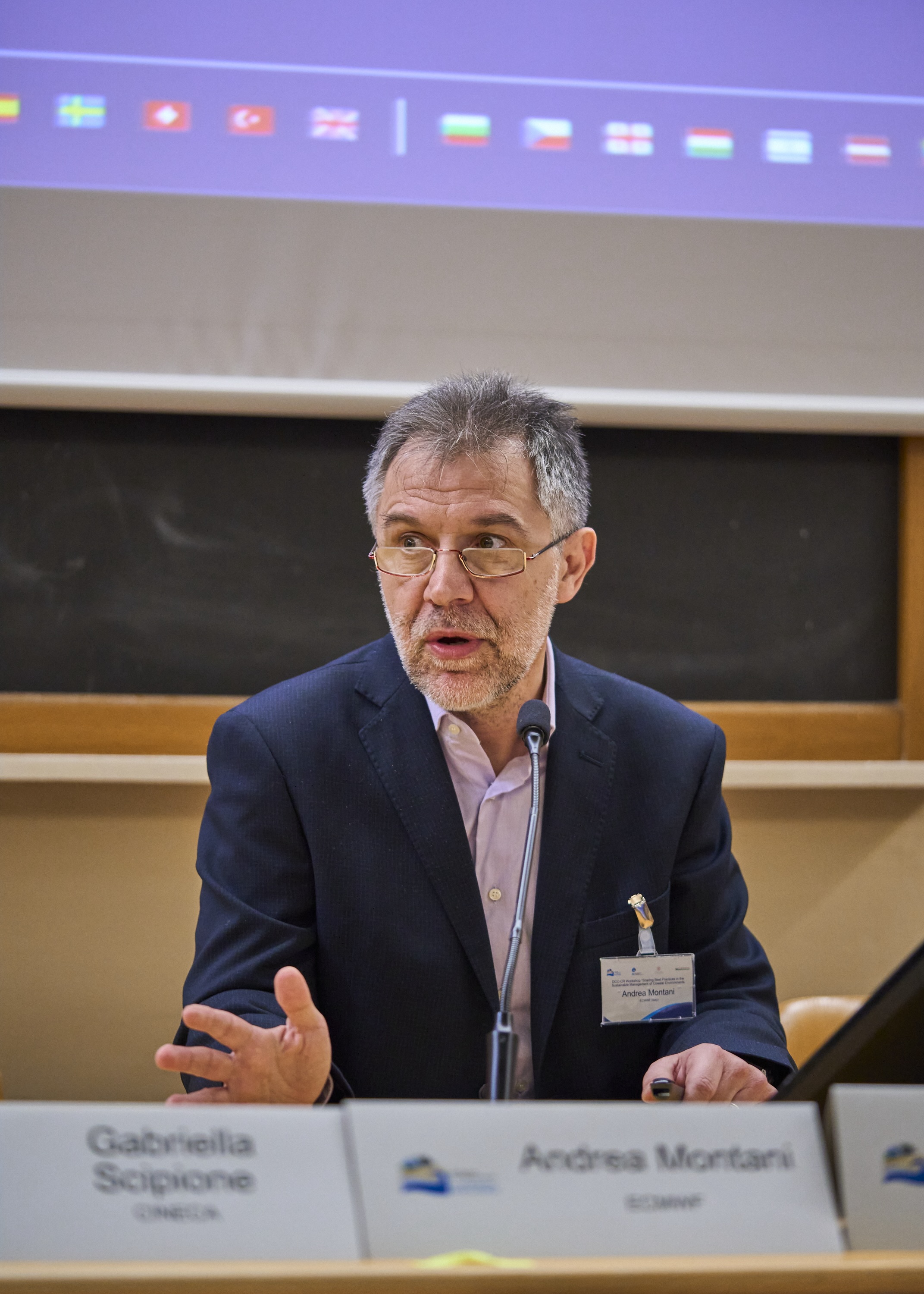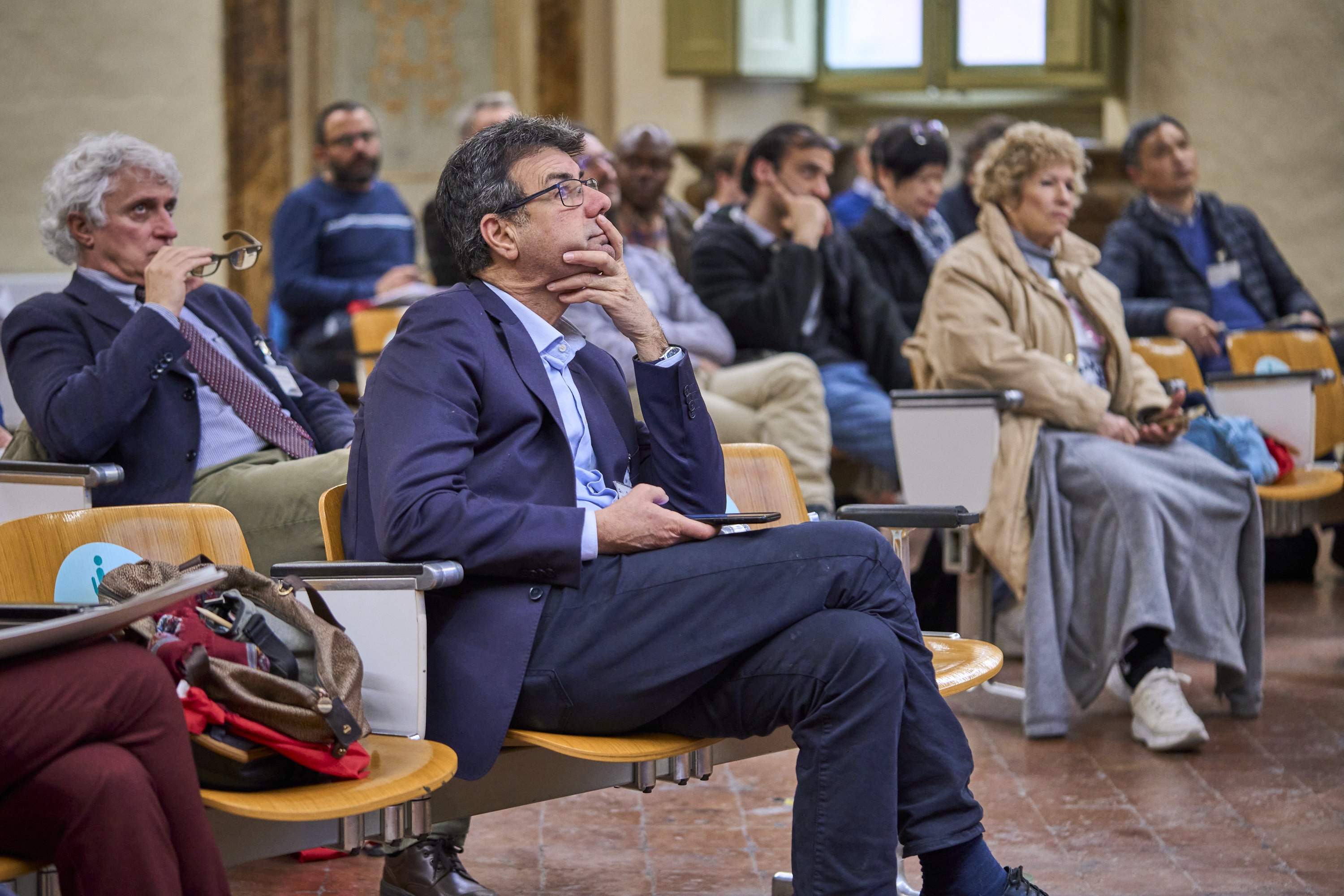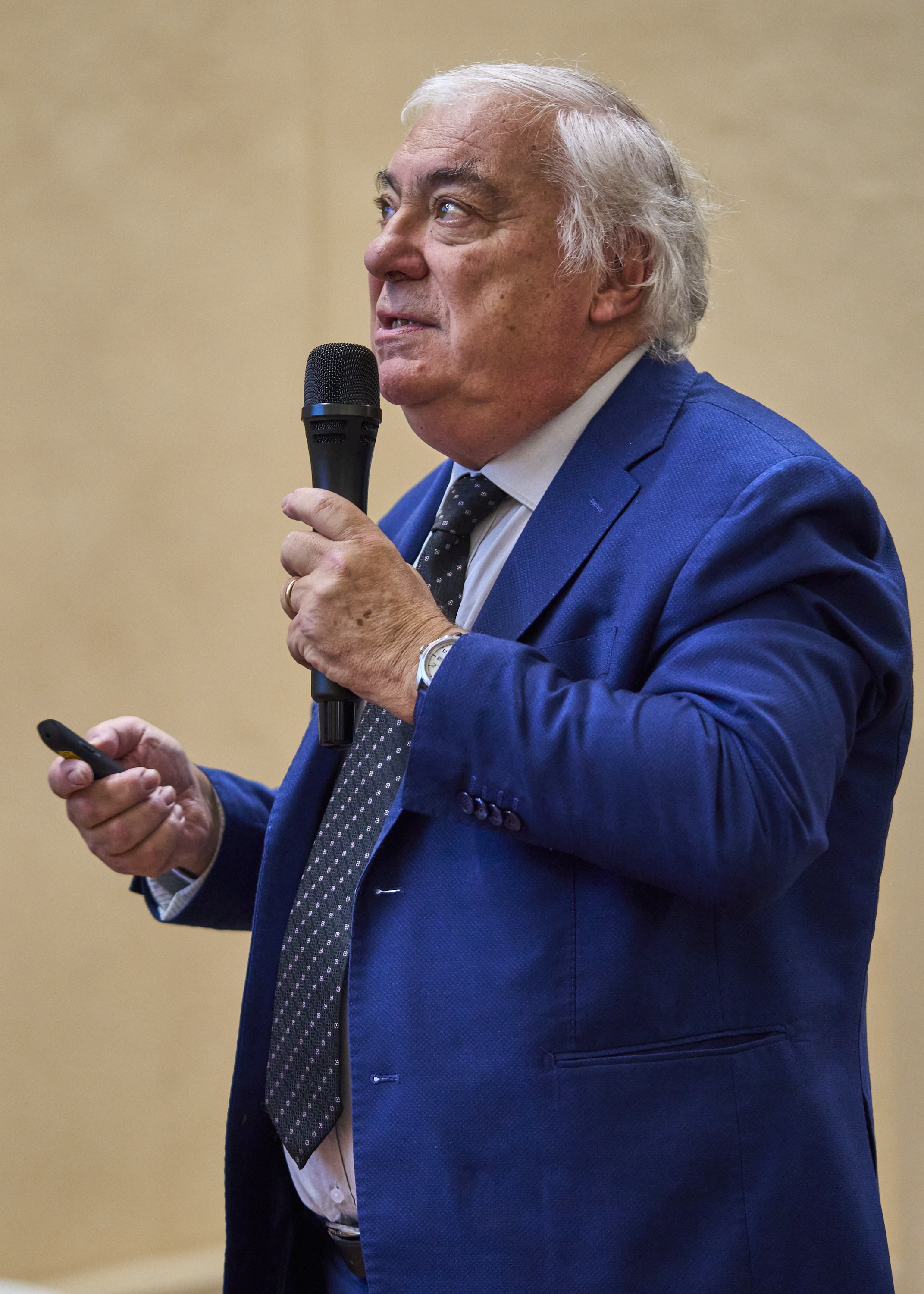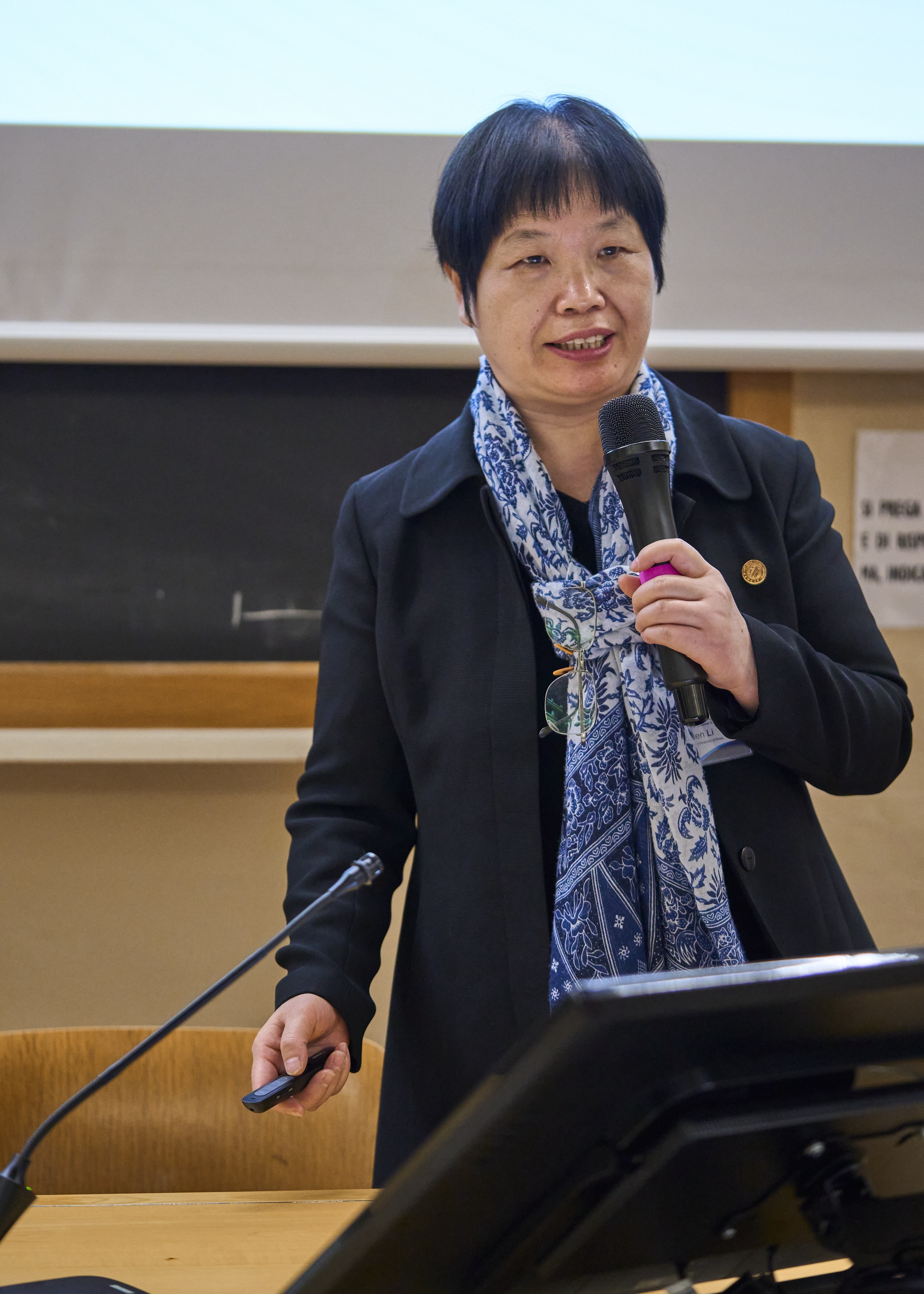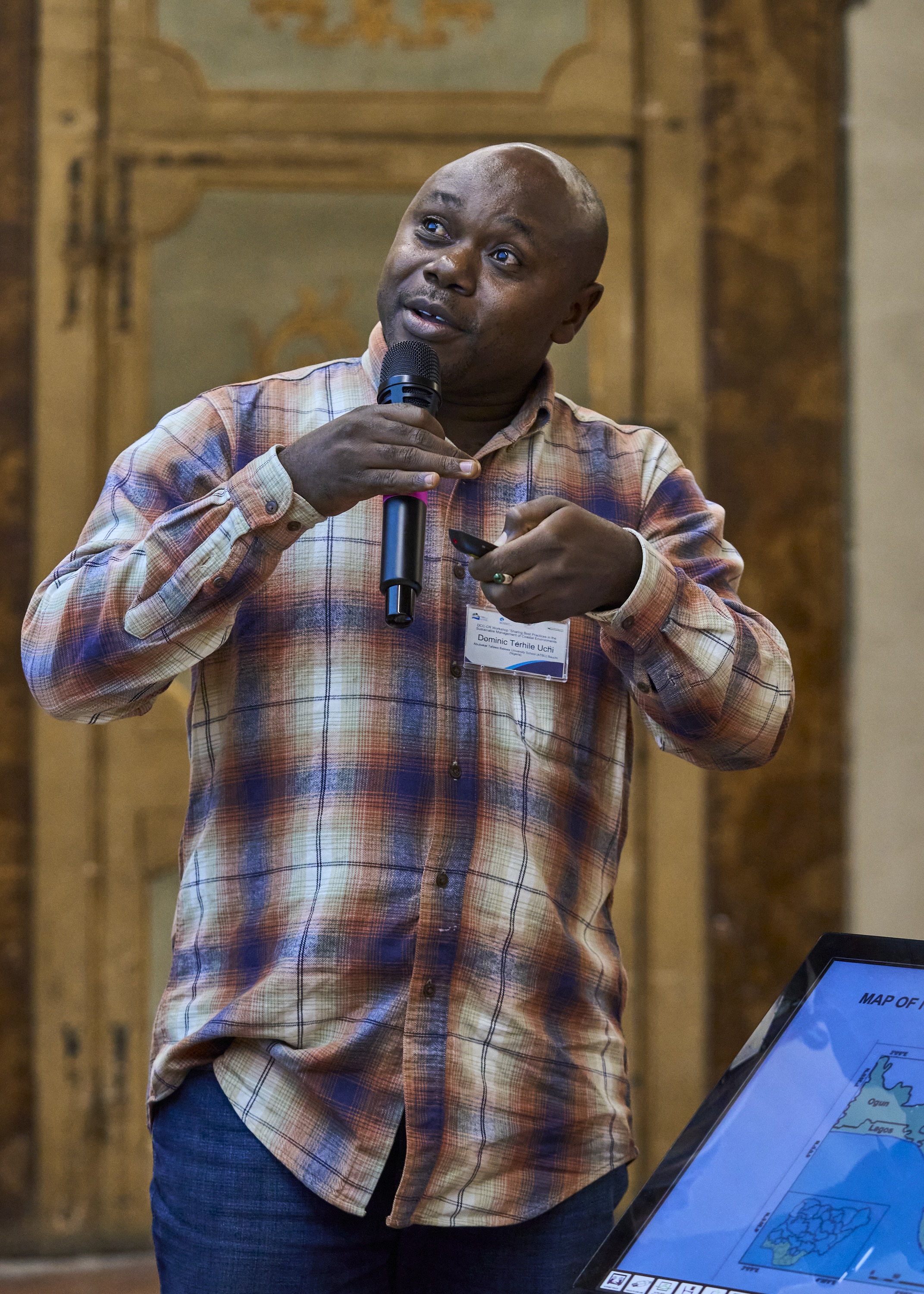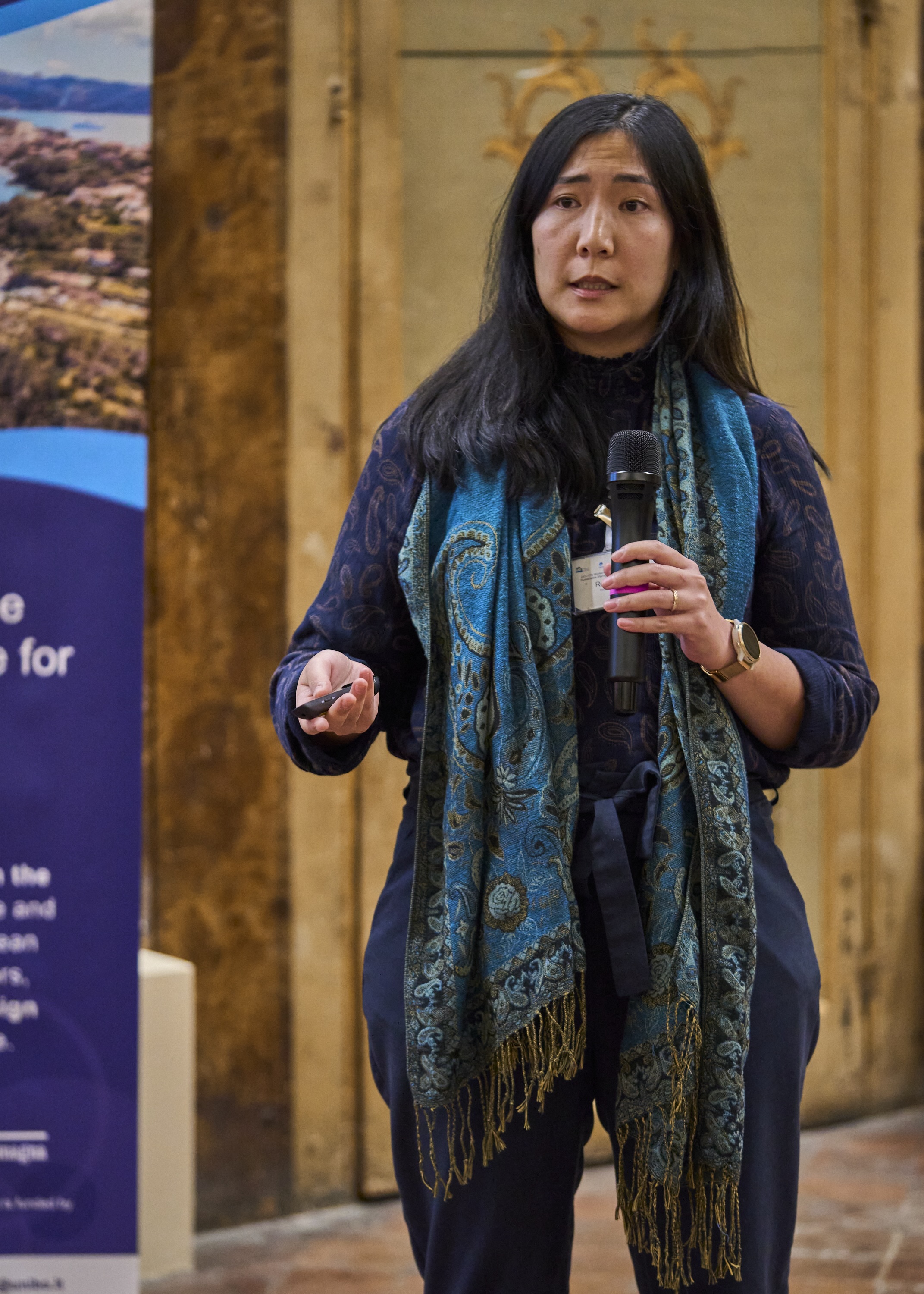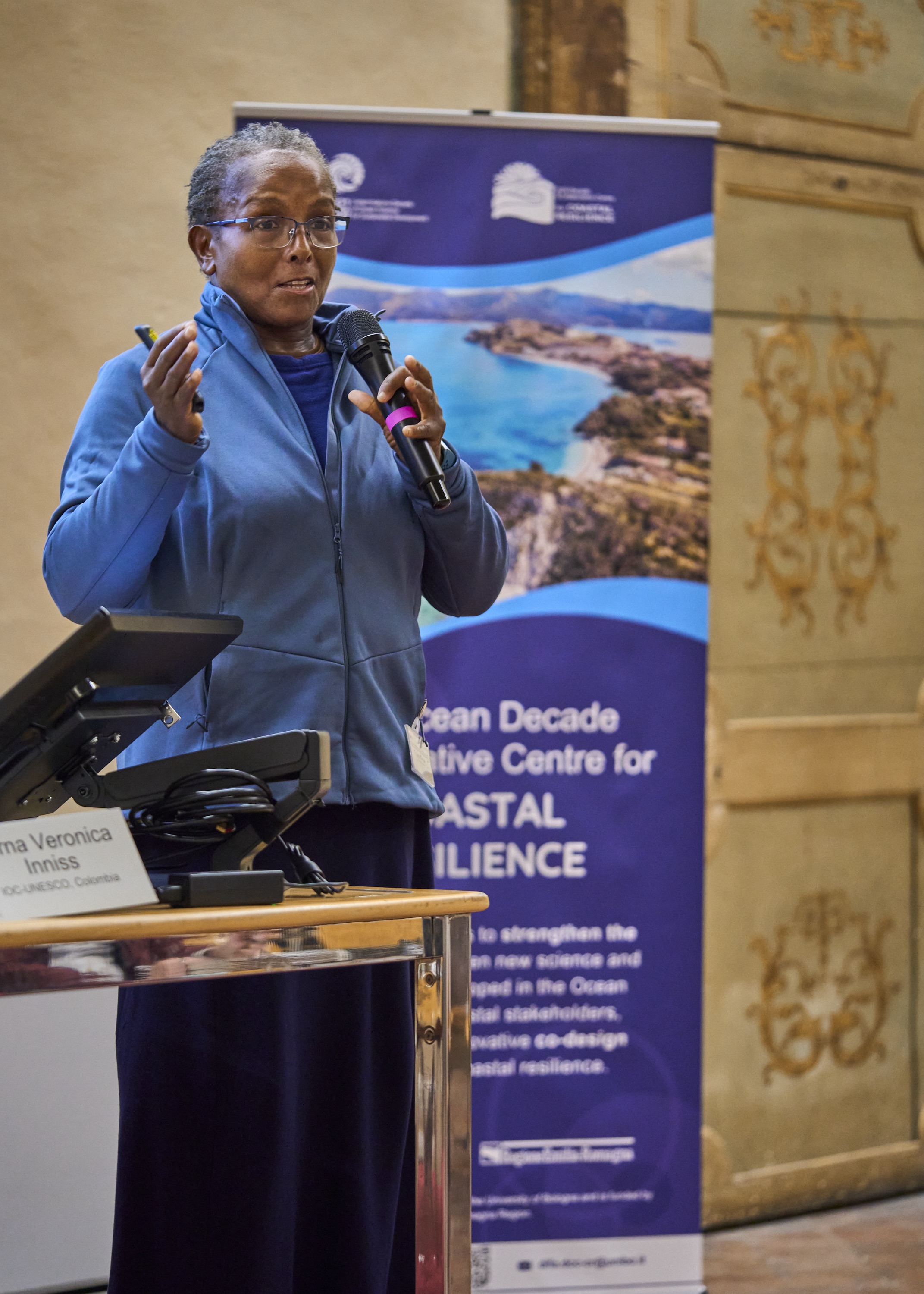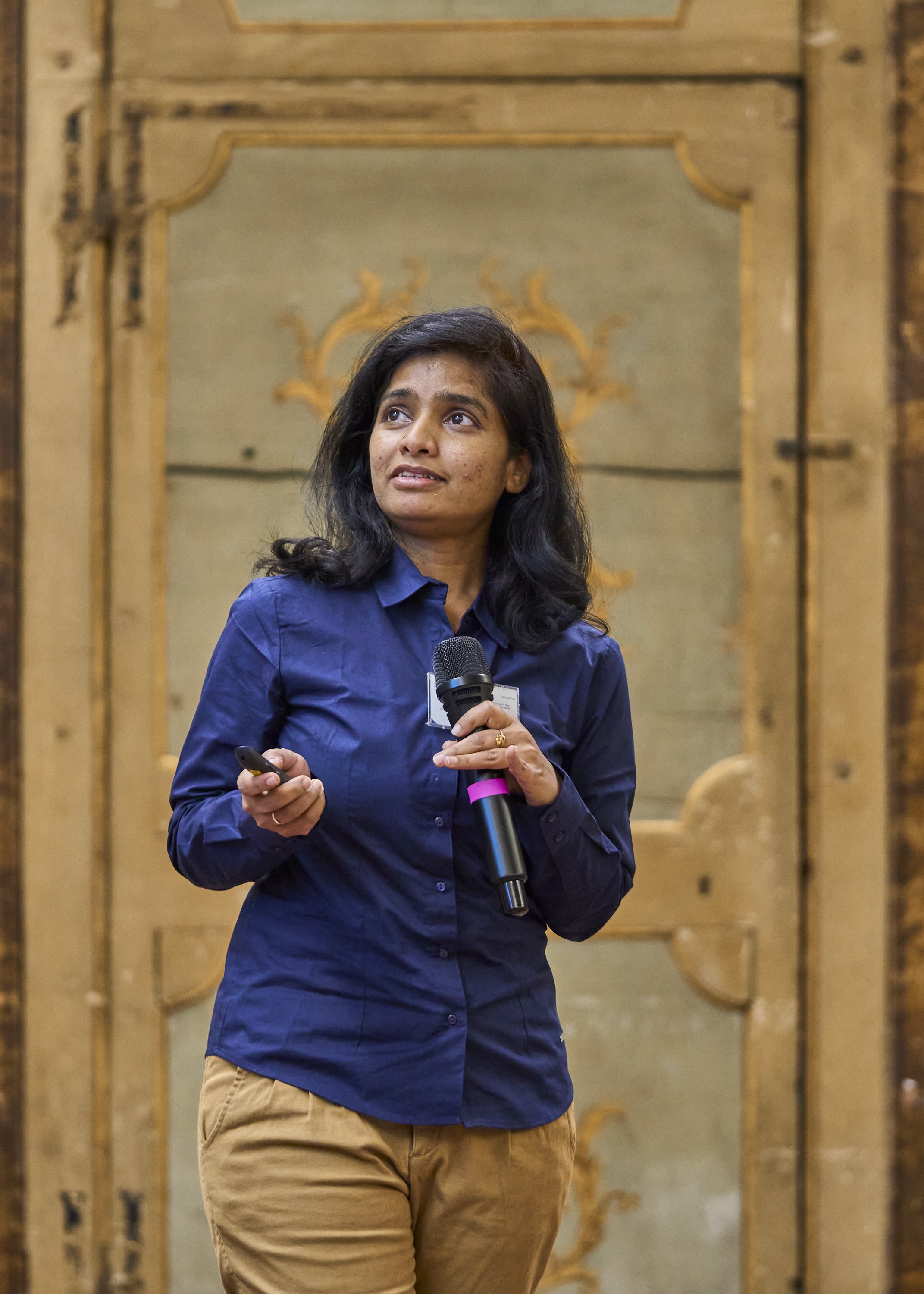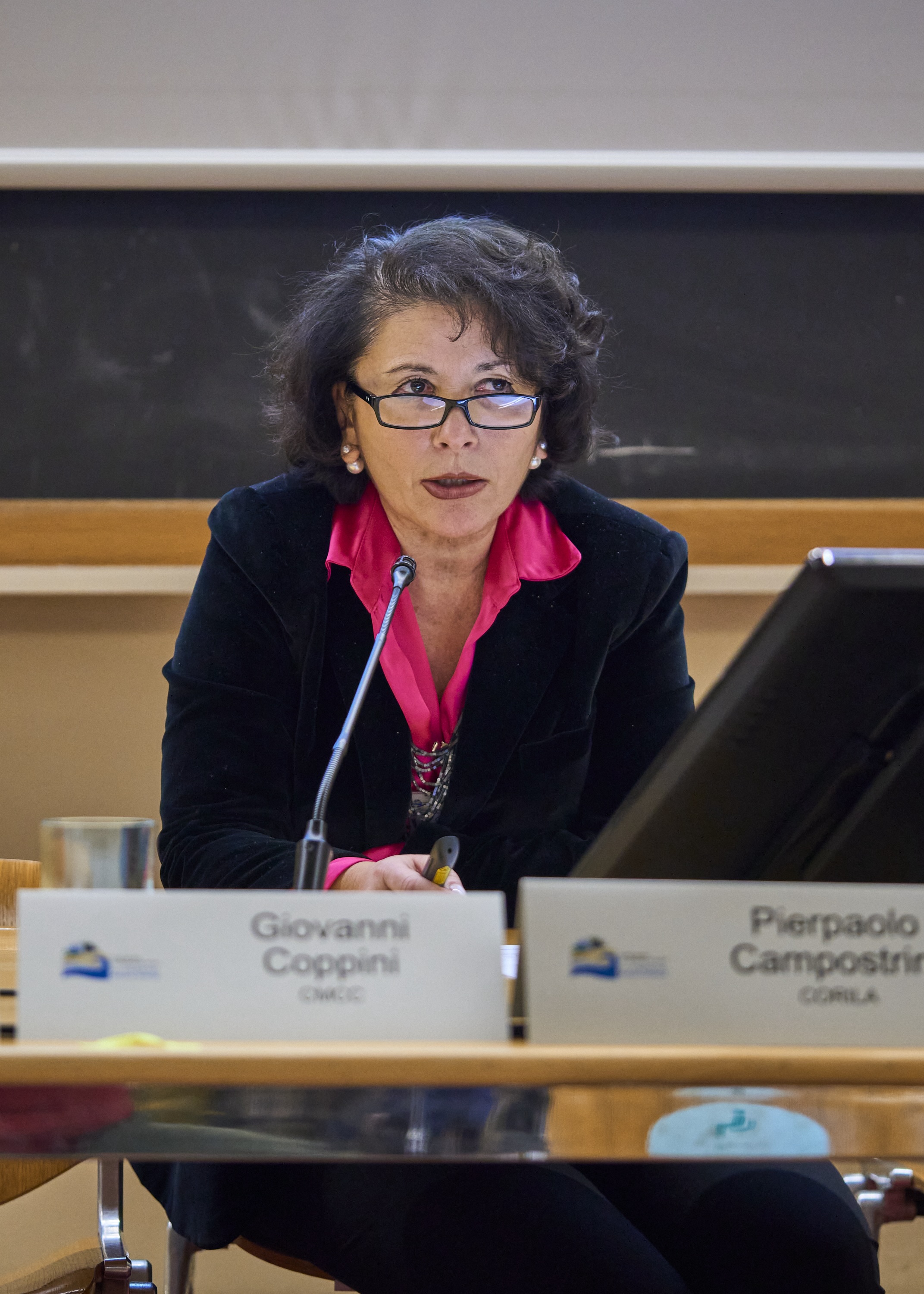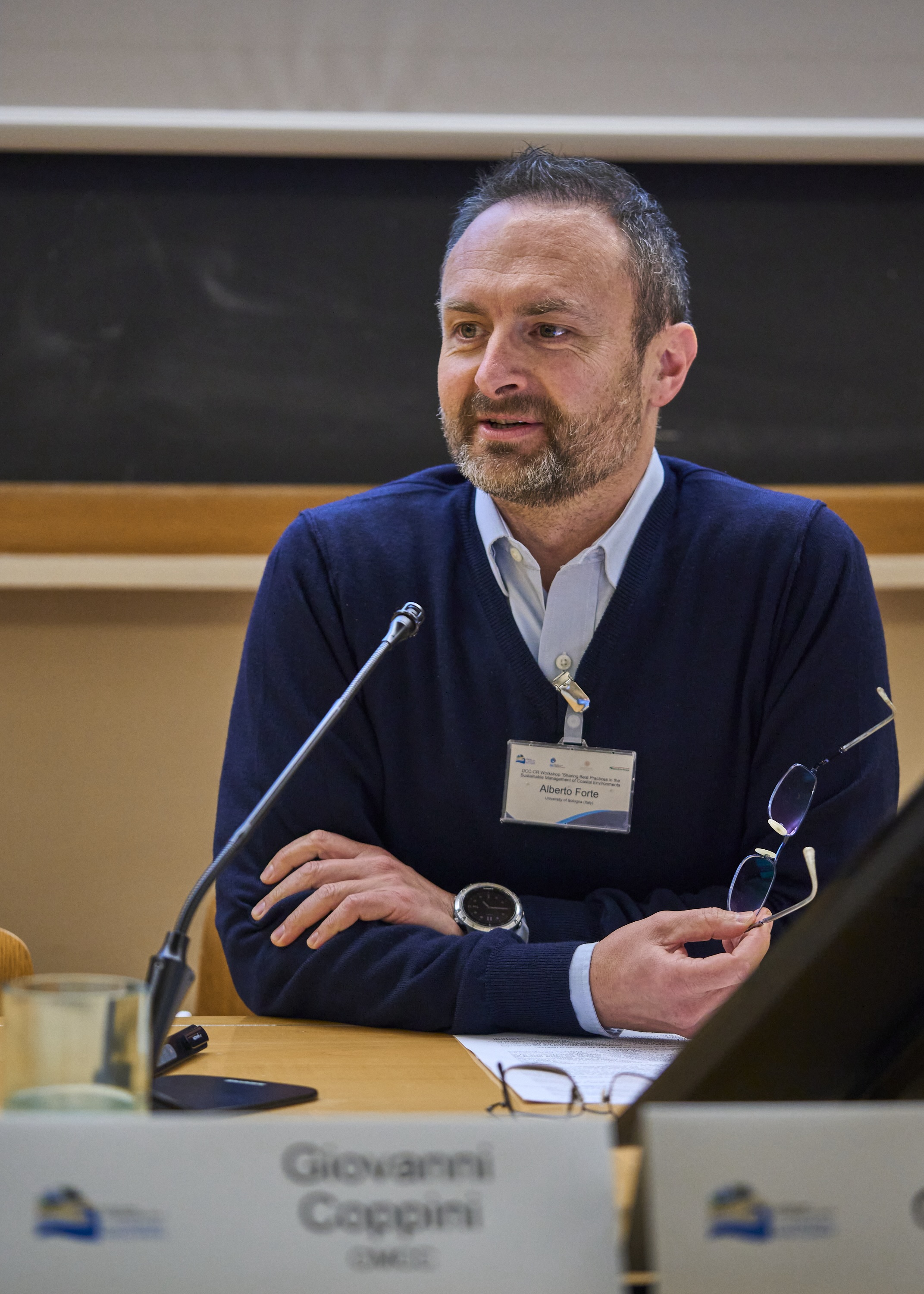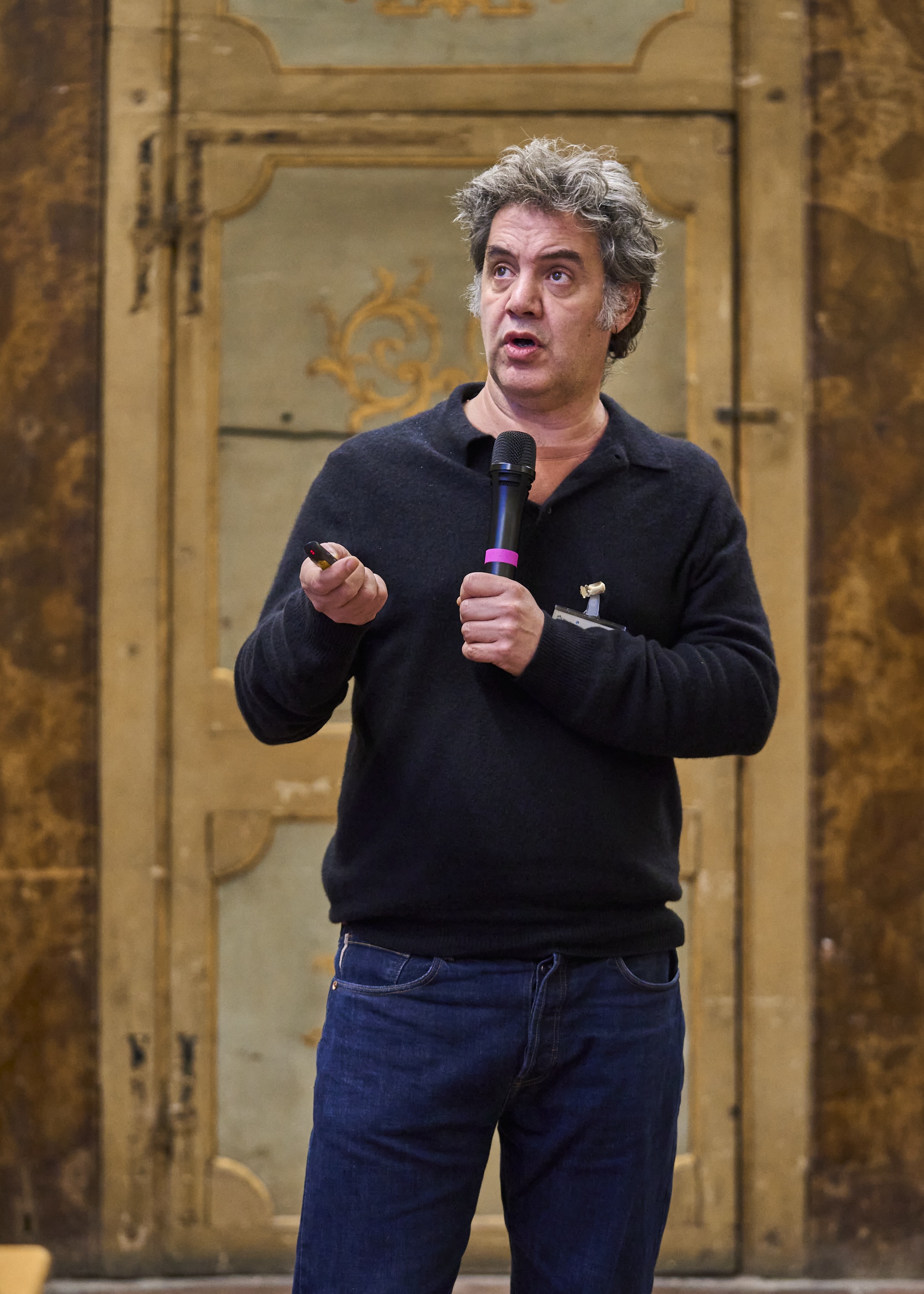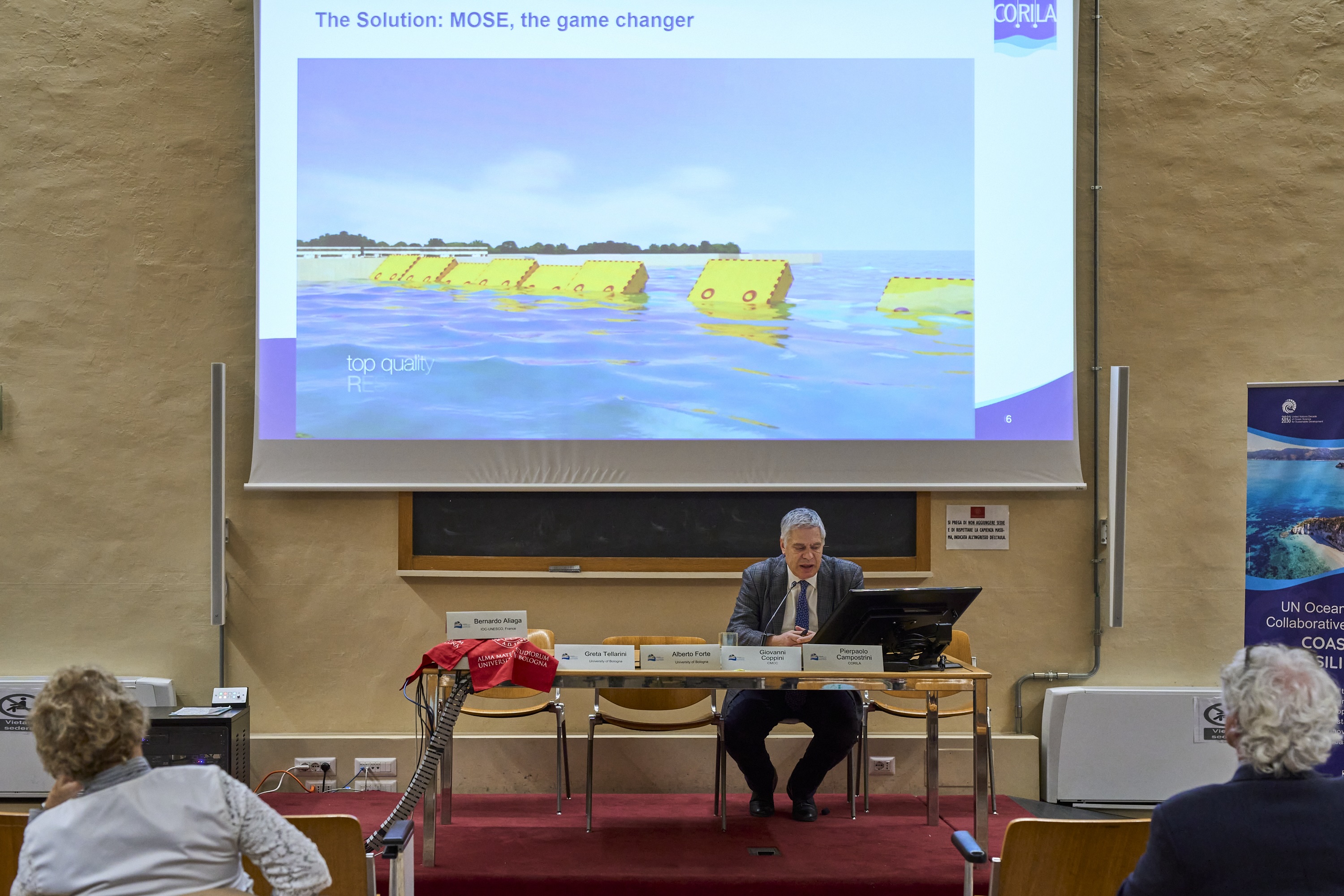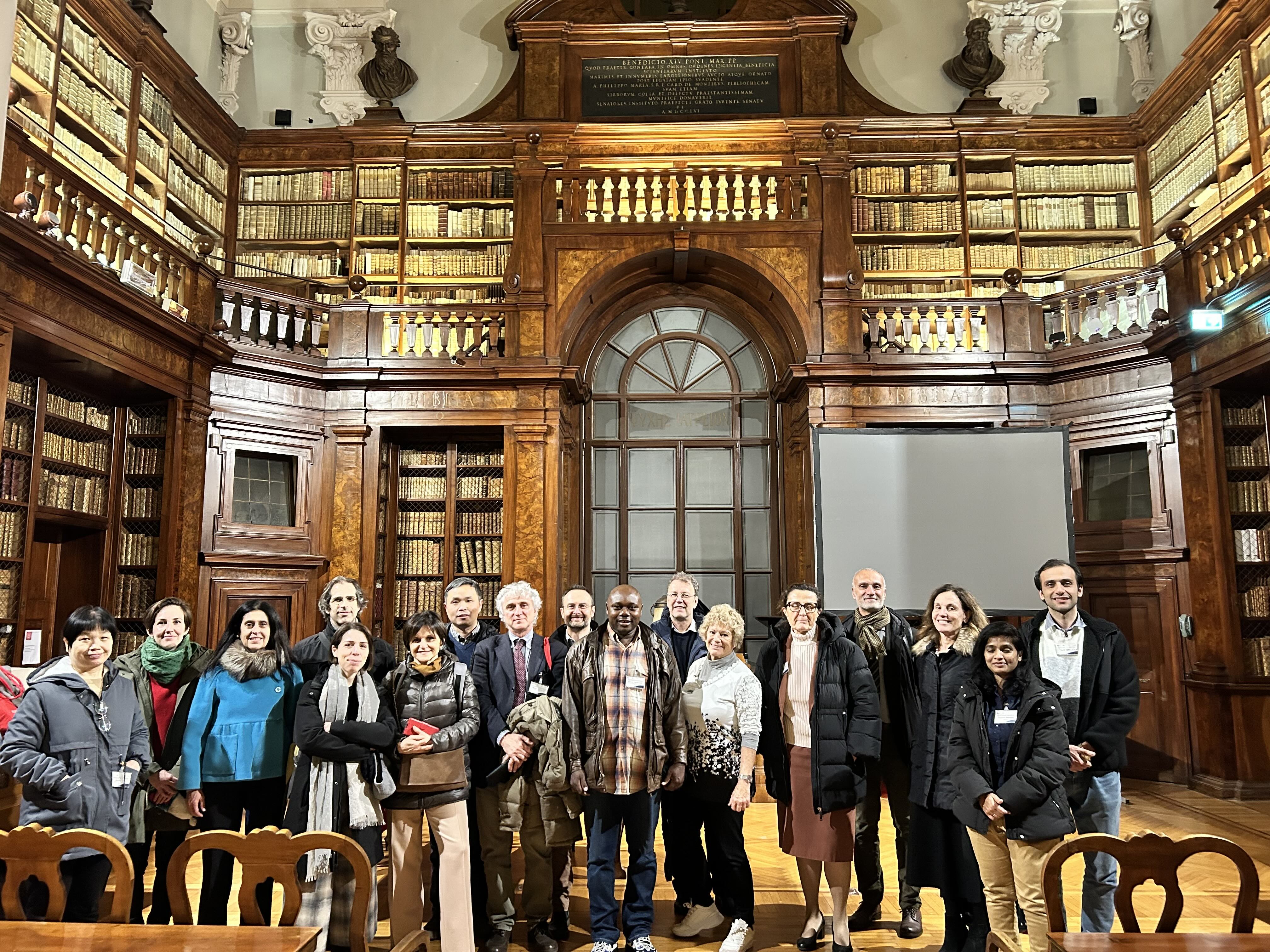Advancing Coastal Resilience: Unveiling Strategies and Innovations for Sustainable Shorelines
The second workshop organized by the DCC-CR took place on December 12th, drawing attention to local and international approached to coastal management.
Published on 18 December 2023 | news
In a pivotal gathering of experts, the recent workshop “Sharing best practices in the sustainable management of coastal environments” served as a beacon of knowledge exchange and collaborative exploration. Hosted by the DCC-CR at the University of Bologna in Palazzo Malvezzi, the event drew together leaders, researchers, and professionals dedicated to addressing the critical challenges facing coastal regions worldwide.
The symposium kicked off with a welcome from Andrea Valentini, representing the DCC-CR at the University of Bologna. Subsequent greetings followed, with Alberto Credi from the University of Bologna and Morena Diazzi from the Emilia-Romagna Region extending their invitations to delve into the pressing issues of coastal resilience and the relevance of this topic for the territory. Nadia Pinardi then set the stage by introducing the audience to the activities of the DCC-CR.
Chaired by Elena Fabbri of the University of Bologna, the first session delved into the local experiences of Emilia-Romagna with managing coastal environments. Luisa Perini and Roberto Montanari from the Emilia-Romagna Region provided insights into critical issues and adaptive strategies along the coastline. Giuseppe Bortone of ARPAE shared the region's experience with advanced monitoring and modeling systems, while Alessandra Pesaresi from the City of Rimini presented an innovative urban sustainable development approach to coastal resilience.
Under the guidance of Hauke Reuter from the Leibniz Centre for Tropical Marine Research in Germany, the second session explored the technological frontiers contributing to coastal resilience. Morena Diazzi introduced the Tecnopolo, providing a glimpse into the innovative hub's contributions. Gabriella Scipione from CINECA discussed the application of supercomputing and AI for high-resolution forecasts, while Andrea Montani from ECMWF showcased research and products supporting coastal resilience. Carlo Cacciamani from ItaliaMeteo unveiled plans for a national met-ocean service, promising to bolster resilience and environmental sustainability.
Led by Vivianne Solis Weiss from the National Autonomous University of Mexico, the third session transcended geographical boundaries. Xiuzhen Li from East China Normal University presented insights into the restoration of coastal wetlands in China. Uchi Dominic Terhile from Abubakar Tafawa Balewa University illuminated collaborative strategies for protecting Nigeria's coastal ecosystems. The session also featured perspectives on coastal management and resilience from the Netherlands, based on the experience of Deltares as presented by Robyn Gwee, the Caribbean and in particular Barbados’ approaches to coastal adaptation, narrated by Lorna Inniss from UNESCO, and India, with the pioneering tsunami services developed by INCOIS and presented by Sunanda Manneela, offering a global tapestry of experiences and challenges.
Chaired by Bernardo Aliaga from the Intergovernmental Oceanographic Commission of UNESCO in France, the concluding session examined legal aspects, yachting tourism's potential role, and transformative initiatives such as the GlobalCoast initiative. Greta Tellarini from the University of Bologna shed light on legal considerations, while Alberto Forte proposed a novel perspective on yachting tourism as a catalyst for coastal resilience. Giovanni Coppini from CMCC shared updates and objectives of the GlobalCoast initiative, and Pierpaolo Campostrini from CORILA offered a compelling vision of Venice adapting to sea level rise.
The presentations were then followed by a visit to the Marsili Museum, to unveil the life and discoveries of Count Luigi Ferdinando Marsili, scientist, diplomat, General of the Habsburg Empire and founder of the Institute of Sciences in Bologna. This rich day concluded then with a dinner.
As the workshop drew to a close, participants left with a collection of insights, strategies, and innovative solutions to bolster coastal resilience worldwide. The event not only highlighted the challenges faced by coastal regions but also showcased the power of collaboration and innovation in paving the way for a more resilient and sustainable future.
Re-watch all the morning and afternoon sessions on our YouTube Channel, and find all the presentations on the event's page of our website.
Snapshots from the Workshop
Images by Manuel Montesano
